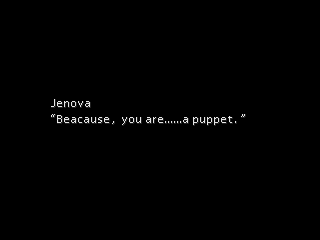http://www.imdb.com/title/tt3302820/
After seeing this back to back with Supersize Me, which shows how the fast food industry has a huge influence on (factory) farmers and agriculture industry since the majority of meat produced ends up at fast food chains, that we maybe need to cull the amount of fast foods restaurants.
A cow does on overage release between 70 and 120 kg of Methane per year. Methane is a greenhouse gas like carbon dioxide (CO2). But the negative effect on the climate of Methane is 23 times higher than the effect of CO2. Therefore the release of about 100 kg Methane per year for each cow is equivalent to about 2'300 kg CO2 per year.
Let's compare this value of 2'300 kg CO2: The same amount of carbon dioxide (CO2) is generated by burning 1'000 liters of petrol. With a car using 8 liters of petrol per 100 km, you could drive 12'500 km per year (7'800 miles per year).
World-wide, there are about 1.5 billion cows and bulls. All ruminants (animals which regurgitates food and re-chews it) on the world emit about two billion metric tons of CO2-equivalents per year. In addition, clearing of tropical forests and rain forests to get more grazing land and farm land is responsible for an extra 2.8 billion metric tons of CO2 emission per year!
According to the Food and Agriculture Organization of the United Nations (FAO) agriculture is responsible for 18% of the total release of greenhouse gases world-wide (this is more than the whole transportation sector). Cattle-breeding is taking a major factor for these greenhouse gas emissions according to FAO. Says Henning Steinfeld, Chief of FAO's Livestock Information and Policy Branch and senior author of the report: "Livestock are one of the most significant contributors to today's most serious environmental problems. Urgent action is required to remedy the situation."
Livestock now use 30 percent of the earth's entire land surface, mostly permanent pasture but also including 33 percent of the global arable land used to producing feed for livestock, the report notes. As forests are cleared to create new pastures, it is a major driver of deforestation, especially in Latin America where, for example, some 70 percent of former forests in the Amazon have been turned over to grazing.
http://timeforchange.org/are-cows-cause-of-global-warming-meat-methane-CO2
Environmental Concerns and Fast Food
Not only does the regular consumption of fast foods diminish health, but most fast food contains plenty of harmful chemical additives, such as preservatives, flavoring agents, and pesticides. It turns out that many of these aren’t just bad for you, they’re also bad for the environment. So, if the potential health risks aren’t enough to dissuade you, then perhaps the environmental consequences will.
It’s not just the chemicals in fast food that affect the environment, it’s the whole chain of production. First, fast food places sell an awful lot of meat. Most, if not all, of this meat is produced at factory farms, which contribute more to global warming than all of our cars put together. Second, many of their products are transported long distances, before they reach your booth, further increasing their impact on air quality.
They also have a negative effect on water quality, as pathogens, hormones, drugs, and the fertilizers they use tend to seep into surrounding groundwater, potentially causing outbreaks of waterborne illness, fish kills, and other hazards.
Fast food places also tend to use a lot of packaging. This overuse of wrappers, straws, bags, boxes, and plastic ware is the biggest source of urban litter in the U.S.
One could argue that those who purchase the products are the ones responsible for making sure they end up being properly disposed of, but fast food places could certainly attempt to use less of the stuff in the first place. Not only does it end up littering our streets, and contaminating our waterways, but its production causes massive amounts of deforestation and pollution.
http://planetmattersandmore.com/food-and-the-environment/fast-food-and-the-environment/






















































